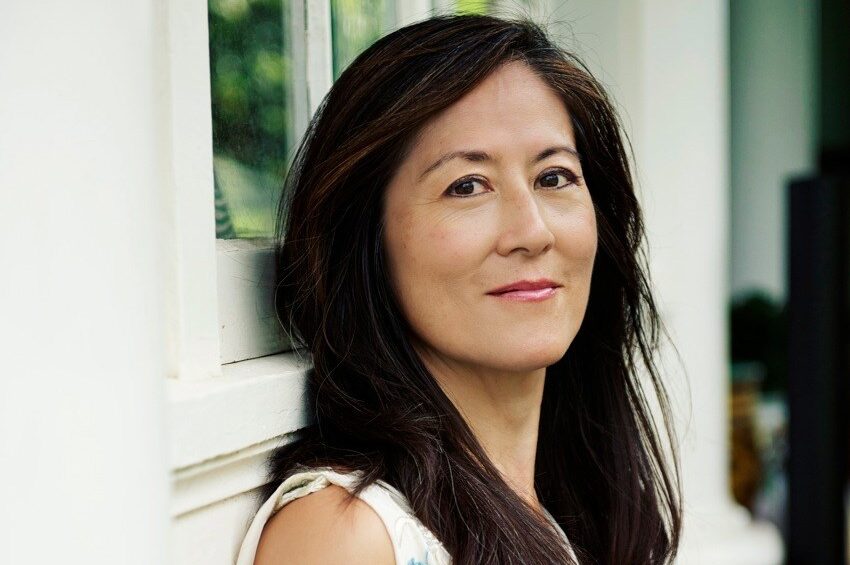By Guest Contributor: Mari Matsuda
Editor’s Note: This piece is a response to “Asian Americans Emerging as a Strong Voice Against Critical Race Theory”, an op-ed published earlier this week on Newsweek. It was originally written as a letter, and has been adapted for publication with permission by the author.
Dear Sisters:
I understand yet another attack on Critical Race Theory (CRT) has surfaced, this time claiming CRT is anti-Asian. This kind of opportunism always trails along to disrupt progressive movements. It has been there from the start of CRT. Many built their careers attacking CRT, Trumpsters being the latest iteration on the Right. It is my practice to ignore critics who have not read the work and who are not interested in honest exchange. I will not read the latest entry in the annals of backlash, but I do want to say this for the record: Asian Americans are at the center of CRT analysis and have been from the start.
Neil Gotanda, Phil Nash, and I were at the founding CRT meeting in Wisconsin in the ‘80s. We came out of the Third World Liberation tradition. We were schooled by Nisei radicals, like Yuri Kochiyama, and in my case, my Mom, to know that alliance with Black and Brown folks was critical to fighting racism, militarism, imperialism, and colonialism. They taught us to see the through line from the Middle Passage to My Lai. Of course, we were ready to develop a theory of racism as the core of American legal liberalism.
Asian Americans are at the center of CRT analysis and have been from the start.
Contrary to the experience of being “the Asian in the room” that had to bring our issues to the fore, we were part of an intellectual community in which Black participants understood that racism against Asian Americans was part of the legacy of U.S. white supremacy. It was Kimberlé Crenshaw who first brought up, at the Wisconsin meeting, the issue of particular forms of racialized misogyny deployed against Asian American women through media imagery. She was one of the first scholars, of any race, to push for an analysis of US immigration law in increasing Asian immigrant women’s vulnerability to intimate partner violence. Intersectionality theory came out of this crucible, with Asian women critical to the analysis. This was all back in the 80’s.
I participated in the first published symposium of Critical Race Theory scholarship, with an article (Looking to the Bottom, Harvard Civil Rights Civil Liberties Law Review) on reparations for Japanese Americans and Native Hawaiians. I co-authored the first CRT book, Words That Wound, centering analysis of hate crimes against Asian Americans. I used CRT analysis to write the first law review article on accent discrimination (Voices of America, Yale Law Review) based on case studies of Filipino and Native Hawaiian litigants. In We Won’t Go Back, written with Charles Lawrence, I used CRT to analyze Asian American responses to affirmative action. I have applied CRT to develop a course on Asian Americans and the law, first at UCLA and then at Georgetown. This work was foundational Critical Race Theory, developed by unpacking anti-Asian racism through a historical and structural analysis of US racism. All of it came out of struggle: real issues and real needs in Asian American communities. That is what Critical Race Theory is, and Asians have been at the center of it. If I start a citation list, it will go on for pages – many brilliant scholars using CRT to analyze anti-Asian racism. Suffice to say, Asian American thinkers were central in the development of CRT, and we were pushed and supported by our Black and Latinx colleagues.
All of it came out of struggle: real issues and real needs in Asian American communities. That is what Critical Race Theory is, and Asians have been at the center of it.
Attacks on CRT are boring and repetitive and will always find an audience because white gatekeepers love to pretend they care about Asians by elevating Asians who will attack Black people. I have responded already – in We Will Not Be Used; in my book Where is Your Body; Beyond and Not Beyond Black and White, in a CRT anthology; in Planet Asian America, etc., etc. I am sending this short statement to you, since the record is not known to people who were born yesterday, and I wanted to state it plain.
Thank you for your outrage and your shining light. There is so much work to do to free all humans from harm and degradation. Let’s get on with that work and leave the ignorant where they belong: alone, unread, and irrelevant.
In struggle,
Mari Matsuda
From her earliest academic publications, the prolific Professor Mari Matsuda (University of Hawaii, William S. Richardson School of Law) has spoken from the perspective and increasingly used the method that has come to be known as Critical Race Theory. She is not only one of its most powerful practitioners, but is among a handful of legal scholars credited with its origin. For a full list of Professor Matsuda’s work, please see her biography here. Professor Matsuda is also an artist, and her work can be found at MariMatsudaPeaceOrchestra.com. (Biographical information adapted from biographic essay by Wendy Williams.)
Learn more about Reappropriate’s guest writing program and submit your work here.

